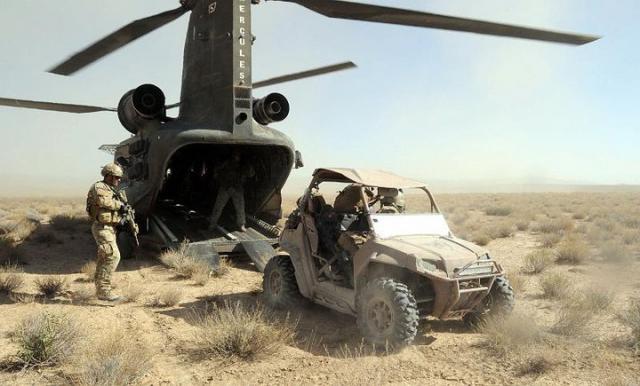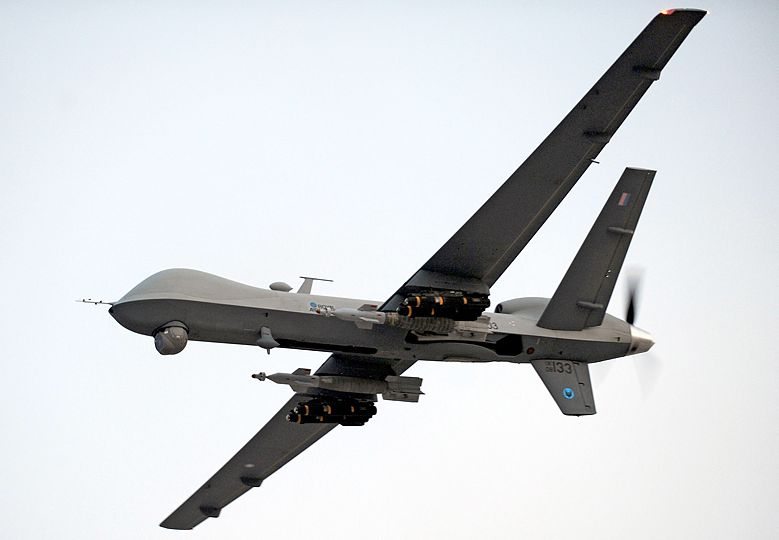Special operations forces today are the best America has ever had, and are a good example of the military’s need to plan now for continued success in the future, the nation’s highest-ranking officer said yesterday.
Navy Adm. Mike Mullen, chairman of the Joint Chiefs of Staff, spoke during the awards banquet of the National Defense Industrial Association’s 22nd Annual Special Operations and Low-intensity Conflict Symposium.
Mullen said he has learned “an incredible amount” about service and sacrifice from the special operations community, noting that special operations forces have been decisive in the nation’s wars since 2001.
As someone who serves alongside those forces, Mullen said, “I would want to just say thanks: Thanks to you who serve. Thanks to you who did. Thanks to you who still support the community.”
Those who serve now in special operations are “the best we’ve ever had,” the chairman continued, “And we need the best we’ve ever had.”
Special operations forces typically are the first ones in, and will be the last to come out when U.S. forces leave Iraq, Mullen said. And the work special operations forces have done in Iraq, he added, has helped to pave the way ahead in Afghanistan.
“We are heavy into Afghanistan,” Mullen said, “and we need everything we learned in Iraq to do what we’re doing in Afghanistan.”
Afghanistan demands great effort across the full spectrum of special operations missions, Mullen said: capturing and killing enemy fighters, conducting civil affairs missions and engaging with local populations, and training indigenous forces.
Looking ahead, Mullen said, the question becomes one of endurance. “We’re in our tenth year,” he noted. “How long can we do it? Somehow we’ve got to figure out how to create a little more balance as we look to the future.”
Budget pressure also is increasing, the chairman said, and no one is immune to that pressure.
“Every dollar counts and we have to figure out how to spend our money wisely,” he said. “At some point in time — and I certainly don’t speak to the wars that we’re in, because we can’t back off there — but at some point in time, we have to ask ourselves, ‘What are we going to stop doing?'”
The health of the force and economic reality will require the military to eventually scale back, the admiral said. The military’s challenge in dealing with decreased funding, he added, will be to approach available resources with a team mentality.
“We’ve got to go through it together,” Mullen said. “And we’ve got to come through actually a stronger force, ready to continue to meet the challenges that are out there.”
Navy Adm. Eric T. Olson, commander of U.S. Special Operations Command, has spoken of the nation’s special operations forces “fraying around the edges” as a result of ever-increasing demand for their contribution to the war effort over the past decade, Mullen said, and that’s something the Defense Department has to take into account.
“We are built to run through walls, or as we say in the Navy, bulkheads,” he said. “We are not built to stop, ever. We are built to succeed in these missions, which we must continue to do.” But leaders have to decide how to prioritize and balance missions to sustain the force for the long run, the chairman added.
Special operations forces typically tell him their families are “doing well,” even after nine or 10 deployments, Mullen said, noting that he often gets the same answer from their spouses.
But his wife, Deborah, hears a different reality from the spouses, he said.
“They’re pushed,” he said. “I don’t care if it’s down in Tampa, or at [Fort] Bragg, or out in San Diego, that’s the reality of where we are.”
Mullen said he doesn’t underestimate the challenges ahead, either in the fight or at home.
“We can’t wish them away, because they’re not going to go away,” he said. “They’re only going to grow in time.”
The chairman said the approach taken by Special Operations Care Coalition, which tracks, supports, and advocates for special operations forces’ wounded, ill, and injured service members and their families, must expand across the entire military.
The Care Coalition is the gold standard for the wounded, their families, and the families of the fallen, he said.
“But I would extend that to the community writ large,” the admiral said. “We need to make sure we have reached wide and deep to the community — one, to be able to finish what we’ve started, and two, to be ready for the future.”
Mullen said over the next four or five years, special operations forces and the military in general will have to answer questions about how to come out of the fight and wind down, but still keep the best noncommissioned officers and officers in the force to be ready for the future.
“It’s not that far off, and that’s not something that we should deal with in terms of a crisis,” he said. “We ought to recognize that’s out there — and [ask ourselves], ‘How are we going [to] transition?'”











